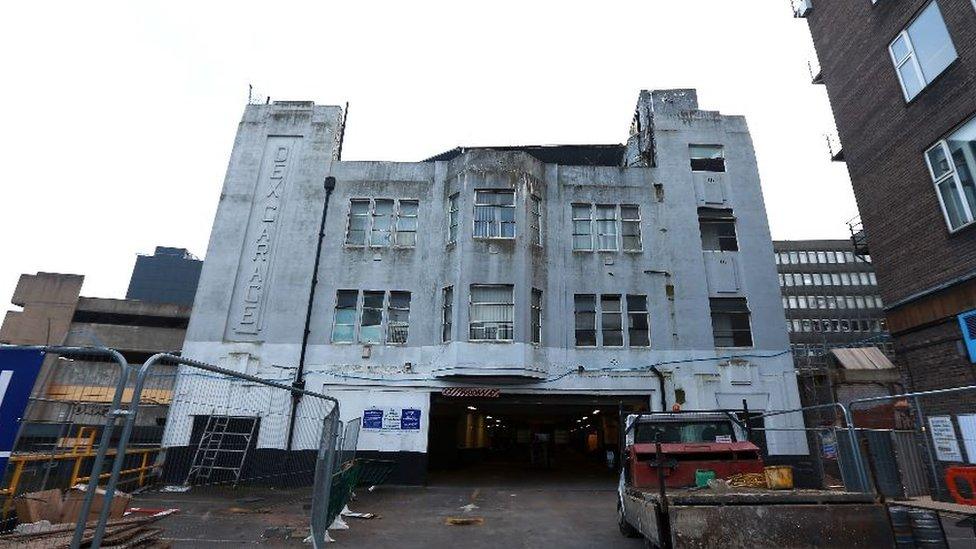Fears Newcastle Art Deco building could be largely demolished
- Published
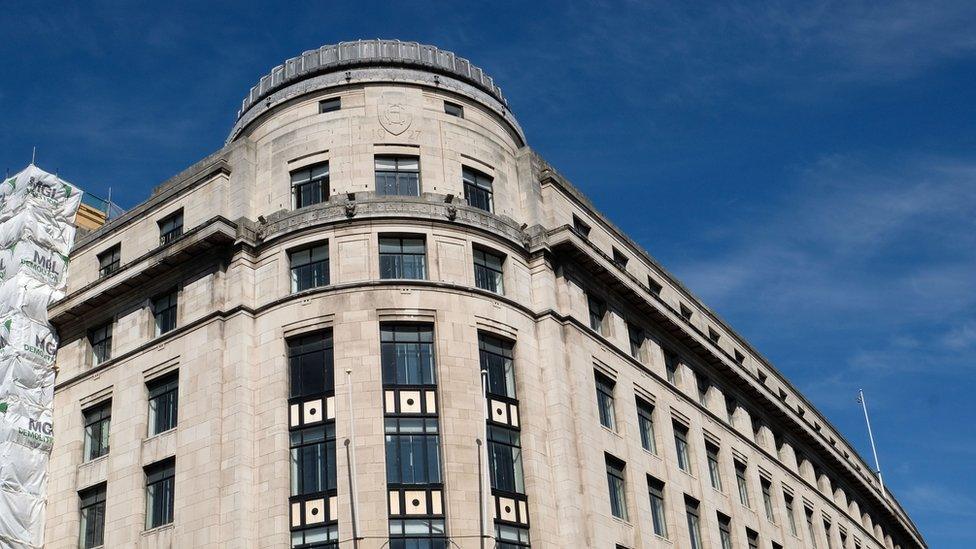
If planning permission is granted only the exterior facade and dome will remain
An Art Deco building could be largely demolished to make way for new offices, a heritage group has warned.
Northumberland and Newcastle Society fears much of Carliol House will be lost to accommodate thousands of HM Revenue & Customs employees when their jobs move to Newcastle.
The 1920s building in Market Street is part of the proposed Pilgrim's Quarter office development.
Newcastle City Council will decide next week whether the scheme will go ahead.
The development, by the Reuben Brothers, external, would see the interior of the Grade II listed site being pulled down to make way for the HMRC offices, with only the exterior facade and dome being retained.
Nine thousands government workers are due to move from Longbenton and Washington to a new nine-storey city centre office which will wrap around Pilgrim Street, Market Street, New Bridge Street West and John Dobson Street.
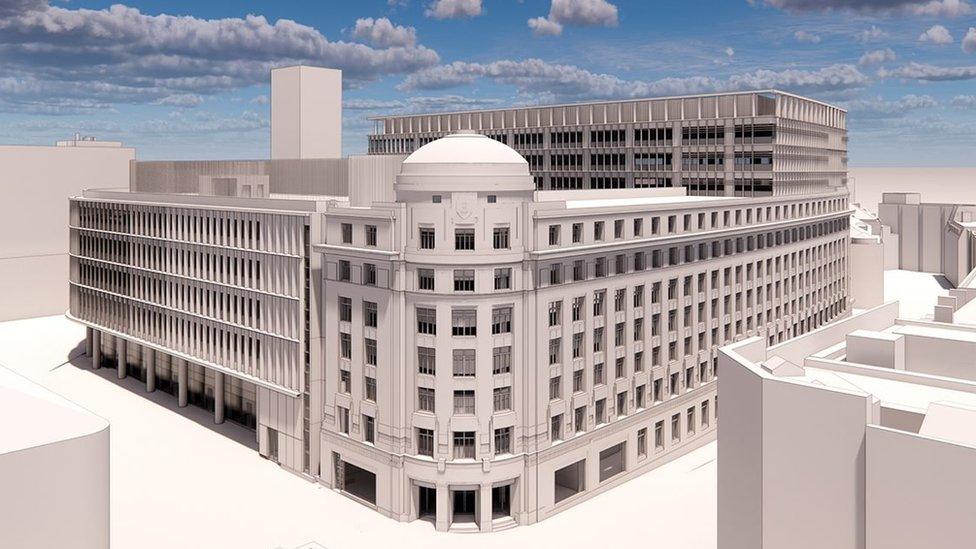
Thousands of HMRC jobs are due to be relocated to the Pilgrim's Quarter development
Tim Wickens, chair of the Northumberland and Newcastle Society's Tyneside committee, said: "The justification for this is apparently due to floor levels not matching up with the new build elements of the scheme.
"This isn't good enough. The finest architects in post-First World War Britain - including Sir John James Burnet, external - designed Carliol House to be a monument to a brave new world and a symbol of a city determined to be at the vanguard."
Carliol House was built between 1924 and 1927 and has been called "one of the city's finest buildings".
The planning application acknowledges that it will "result in harm to the significance of Carliol House through the loss of the building's historic fabric", but claims that the benefits of the office complex will outweigh the negative impact on the prominent site.
The former Dex Garage car park has already been demolished in preparation for the redevelopment, while the Stack container eating and entertainment hub will also close in May to allow for building works.
If approved next week, Pilgrim's Quarter is expected to open in 2027.

Follow BBC North East & Cumbria on Twitter, external, Facebook, external and Instagram, external. Send your story ideas to northeastandcumbria@bbc.co.uk, external.
- Published23 November 2021
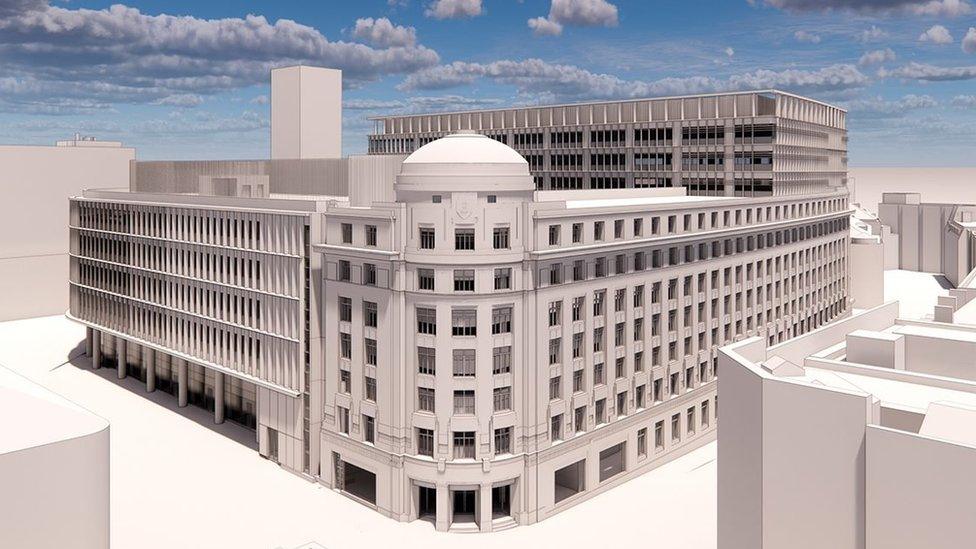
- Published6 July 2021
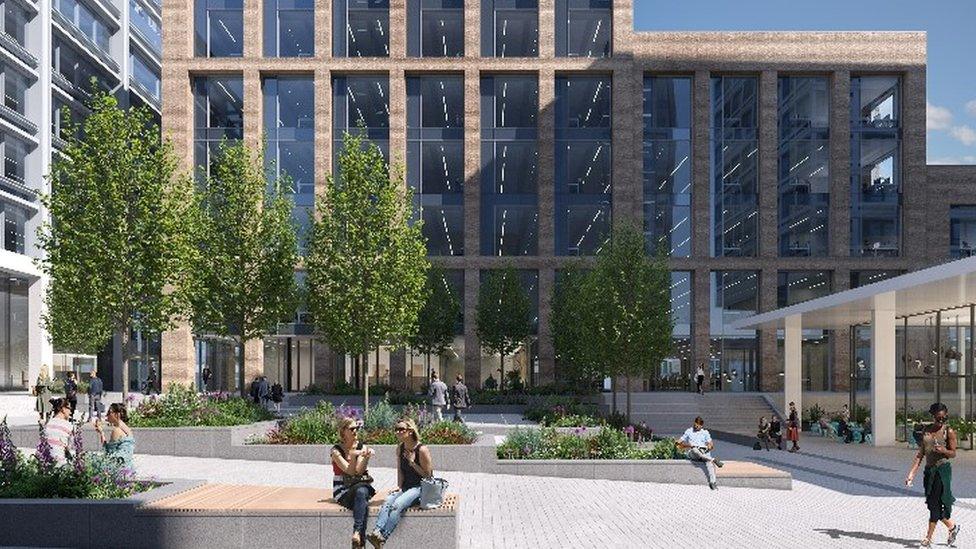
- Published29 March 2021
